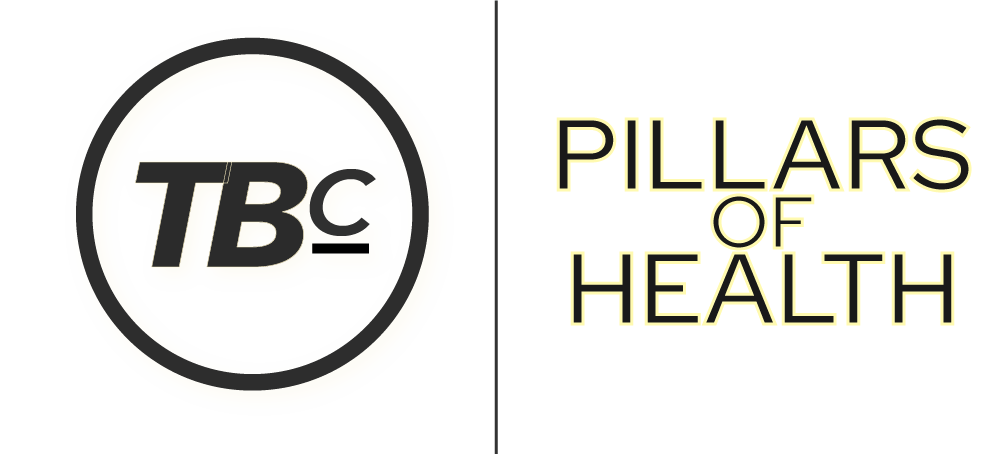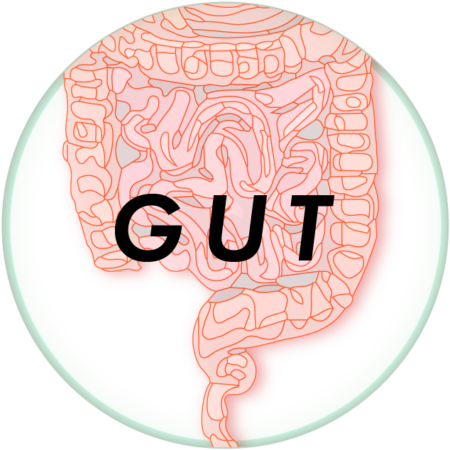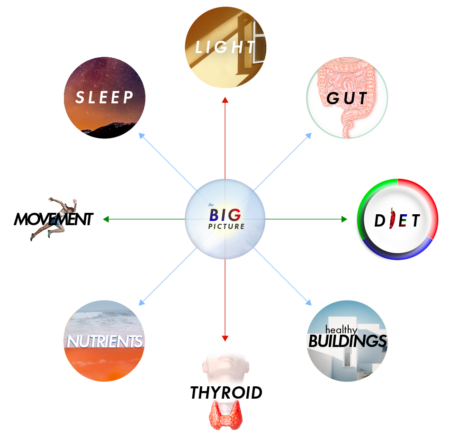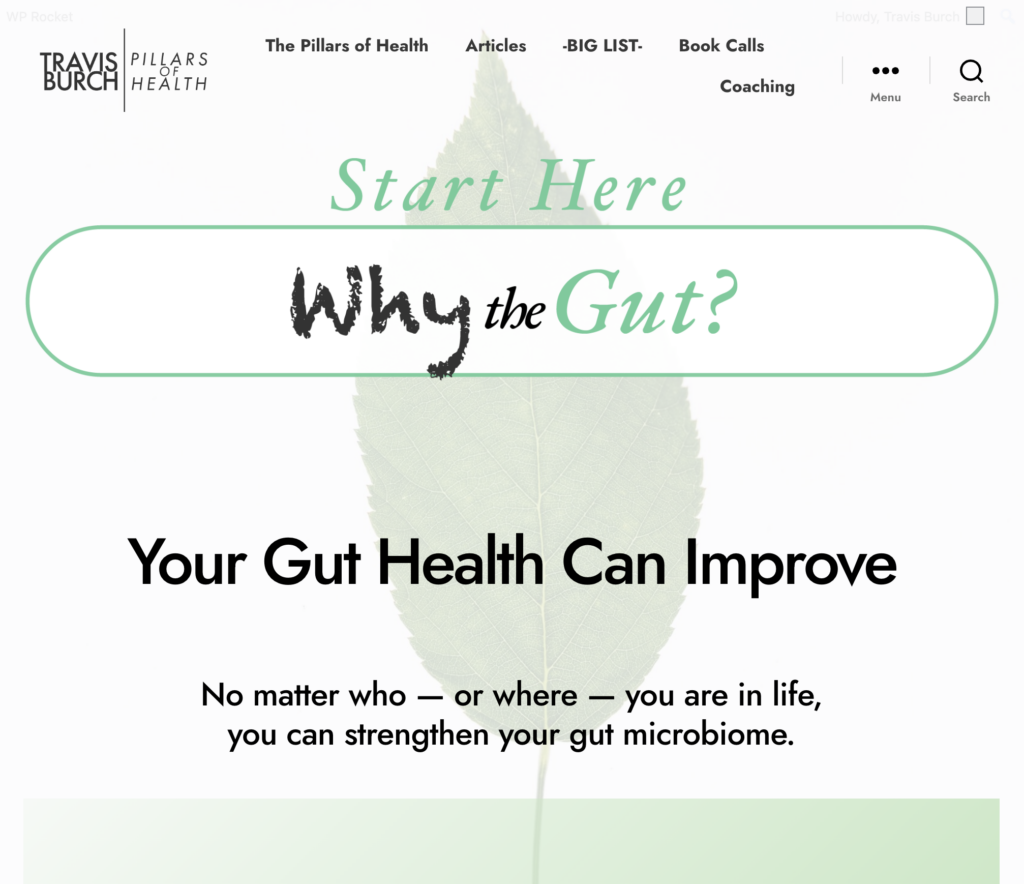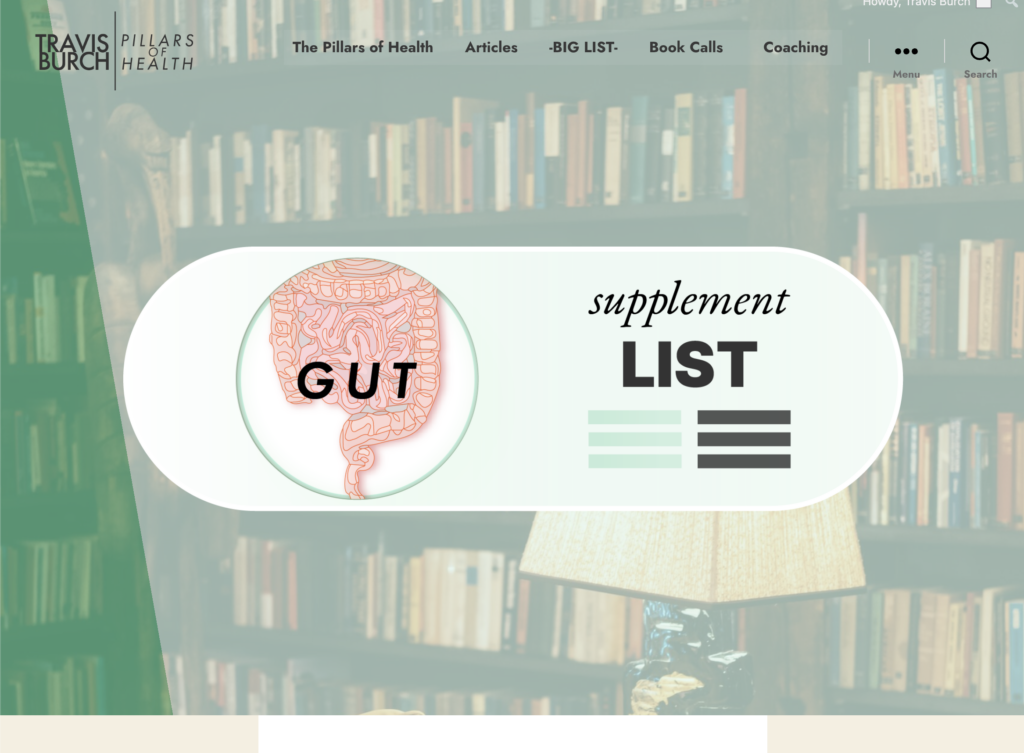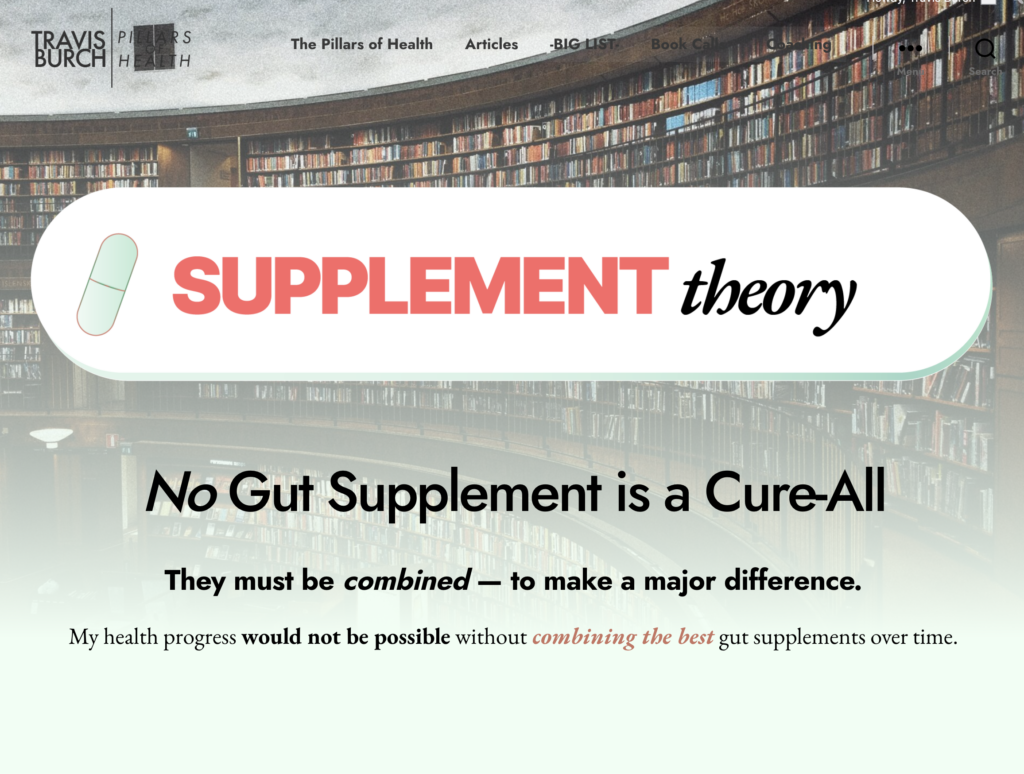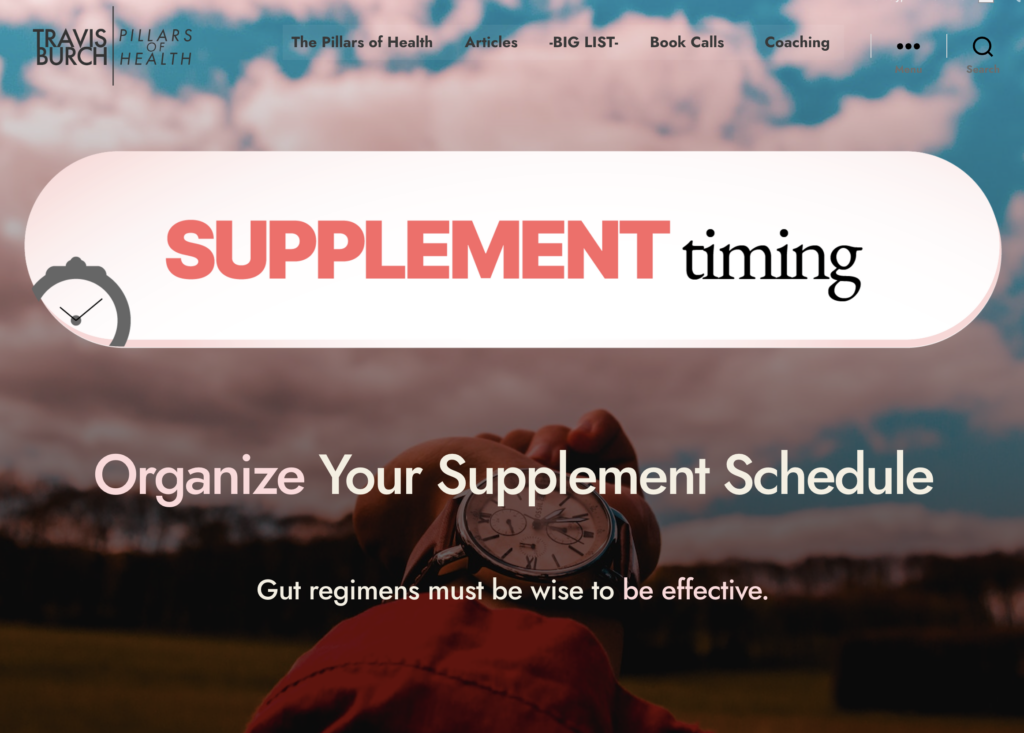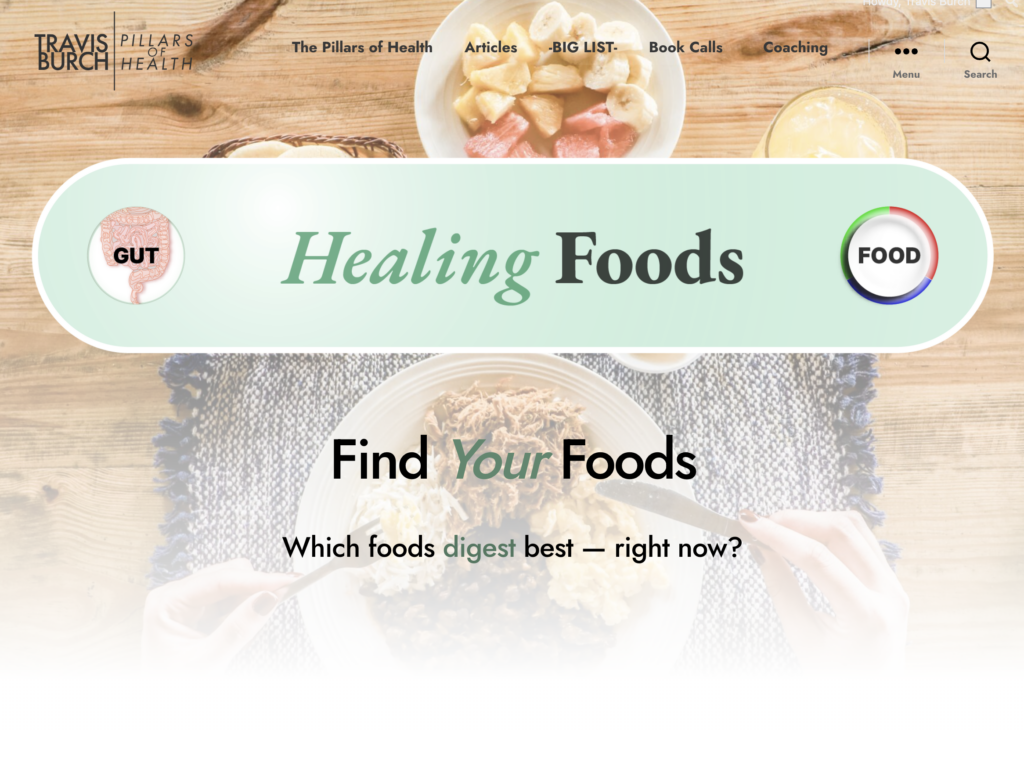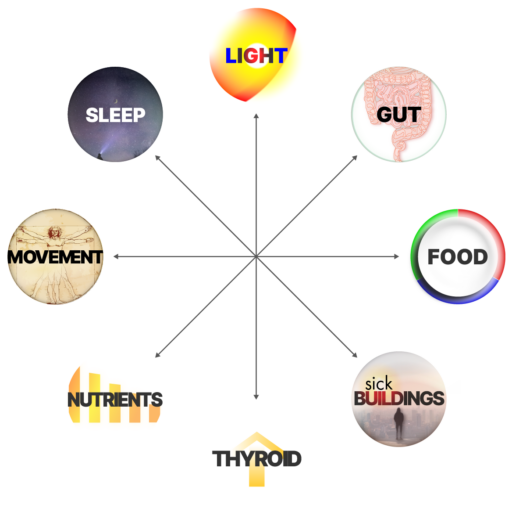Why Take Gut Supplements?
To restore poor gut health, food alone was never sufficient for me — nor for most of the thousands of people I’ve spoken to over the years.

For many, neither is nutritional therapy, hormone therapy, improving the metabolic rate, or strict mold avoidance. None alone are sufficient to restore gut health.
What we’ve observed is that, often, something powerful needs to enter the gut — and actually change the microbiome for the better.
Gut Health is Never Static
It’s important to really understand this: the gut microbiome is always changing, throughout life.
It’s always reacting to food, stress, and pathogens bombarding it. Unfortunately, most stressors — especially the chronic stressors of modern — have the effect of harming the gut microbiome over time. Weakening gut health is likely in everyone’s future — unless we do something about it.

Therefore, we need a long-term strategy to 1) recover our robust gut health and then 2) protect it — to prevent what’s otherwise inevitable: continually-worsening gut health as we age.
Hyperlinks
The human body is bombarded with microbes all day — every day.
In fact, the average person swallows over a trillion microbes each day.
A Healthy Body Keeps All Microbes in Check
In robust health, the body can regulate the microbes in the gut, keeping them from becoming “too comfortable” and growing out of control.
Most microbes are killed by high stomach acid. The few that survive find the upper intestines a difficult place to live — high in IgA and antimicrobial peptides known as Paneth cells.
Lower in the gut, the colon is full of macrophages, eosinophils, and mast cells. Using these weapons, the cells of the larger intestine can “phagocytose pathogens and release toxic and inflammatory mediators such as nitrogen radicals and histamine.”
The immune system is constantly on the hunt for microbes — making life difficult for any would-be invader.
“A huge proportion of your immune system is actually in your GI tract.
Dan Peterson, Johns Hopkins University School of Medicine
The immune system is inside your body, and the bacteria are outside your body.”
A Weak Body Struggles Against Microbes
On the other hand, when health is weaker, the body’s immune system cannot adequately oppose the rising tide of microbial bombardment.
The gut’s semi-permeable barrier weakens and pathogens enter the bloodstream, setting off an endless immune response — inflammation, histamine, and mast cell activation.
Rising levels of pathogens throughout the body — above and beyond what the immune system can control — cause the body to be in a perpetual state of stress, and therefore, unable to execute normal metabolic and hormonal functions.
As you well know from being ill, an activated immune response is misery. If your immune response is overactive, each day can be miserable.
The Purpose of a Gut Protocol
A smart gut regimen “helps out” the gut by beating back the pathogens and overactive gut flora that have made themselves at home.
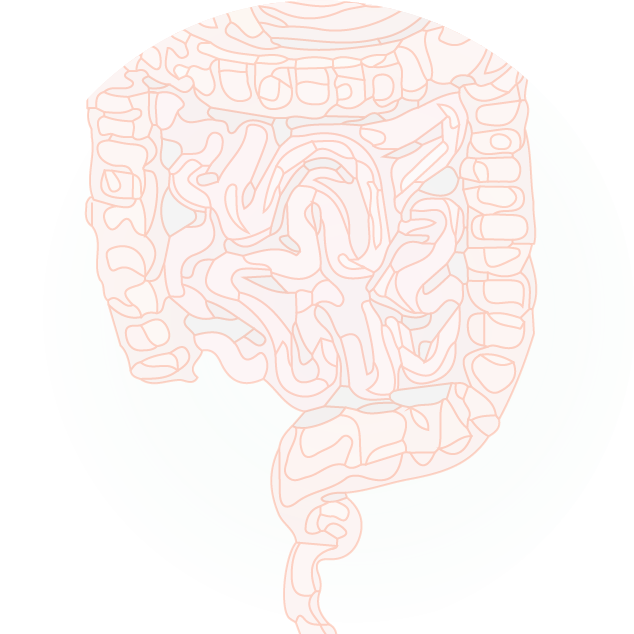
With a little help, the body can begin to re-establish its own control of the situation.
As the digestive process begins to improve, nutrients are better absorbed and energy production rises — both of which boost immunity.
Then, as the immune system strengthens:
- Pathogens are inherently kept in check
- Inflammation levels fall
- Hormone levels, long-suppressed due to inflammation and infection, can begin to balance, leading to restored normal function of the metabolic, sexual, and circadian systems.
Brain health, sleep, energy levels all improve when digestive health and immunity are restored.
Not An Overnight Process
This happens over time.
When we are always “helping out” the immune system, “beating back” pathogens, and repopulating the gut with good microbes — throughout the day — we give the body a chance to strengthen, little by little.
This absolutely requires long-term effort. How long?
You can notice benefits within weeks and even days. But the improvements will be temporary unless you continue supporting your gut.
Restoring gut health, especially when it’s really struggling, isn’t a 5-Day Challenge. It’s months of stacking the deck, over and over and over, in your body’s favor.

So, Increase Hostility
When the immune system is weak, the gut becomes a warm, alkaline, moist place — with a lot of decaying food matter. A perfect place for microbes to live and grow.
Without the immune system, the gut is an ideal home for any and all microbial life.
Don’t let microbes feel at home in your gut. If they are comfortable, something is wrong.
Therefore, the main goal here is to increase the hostility of your gut to pathogens — something that all gut supplements actually do.

Your Progress — 18%
(free) Articles
Complete Guide – $29
Explore each page for free.

